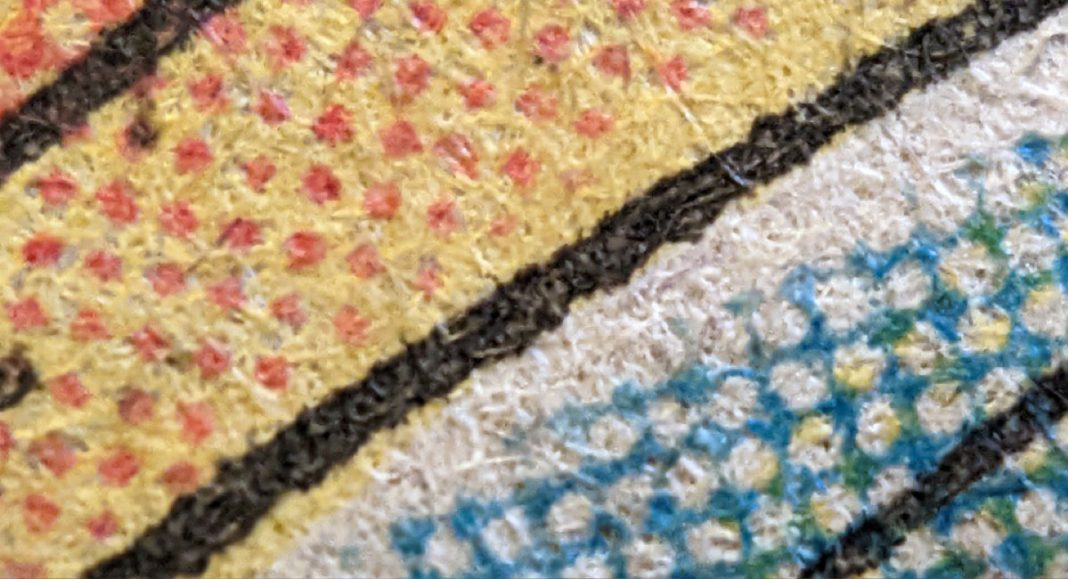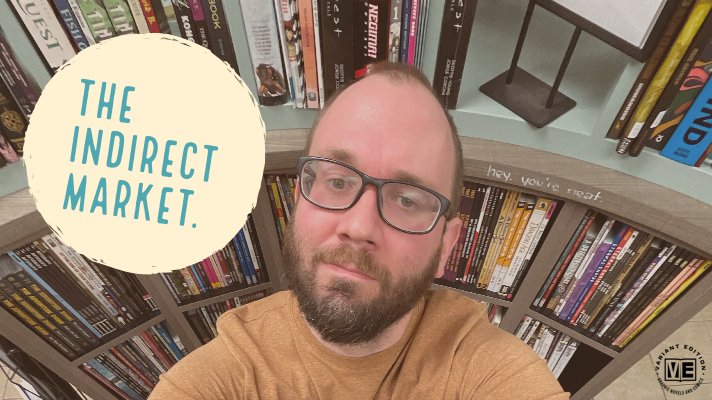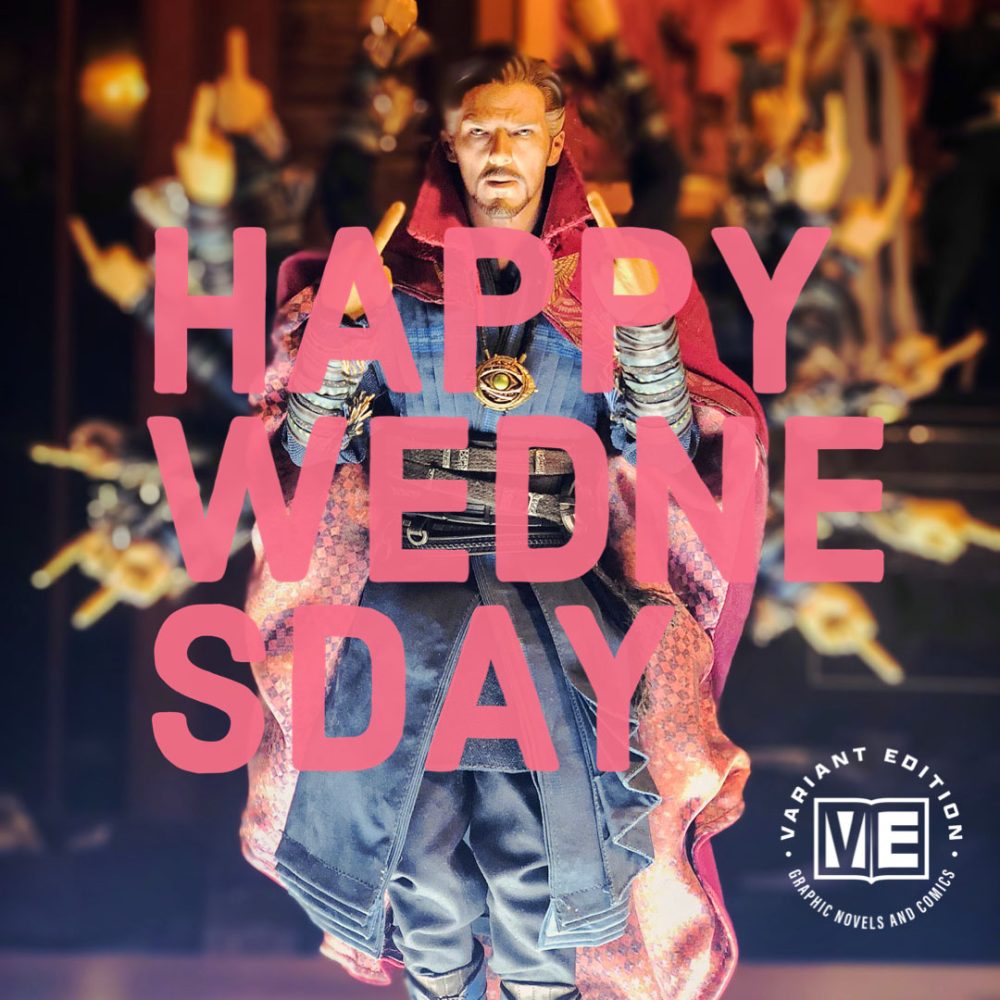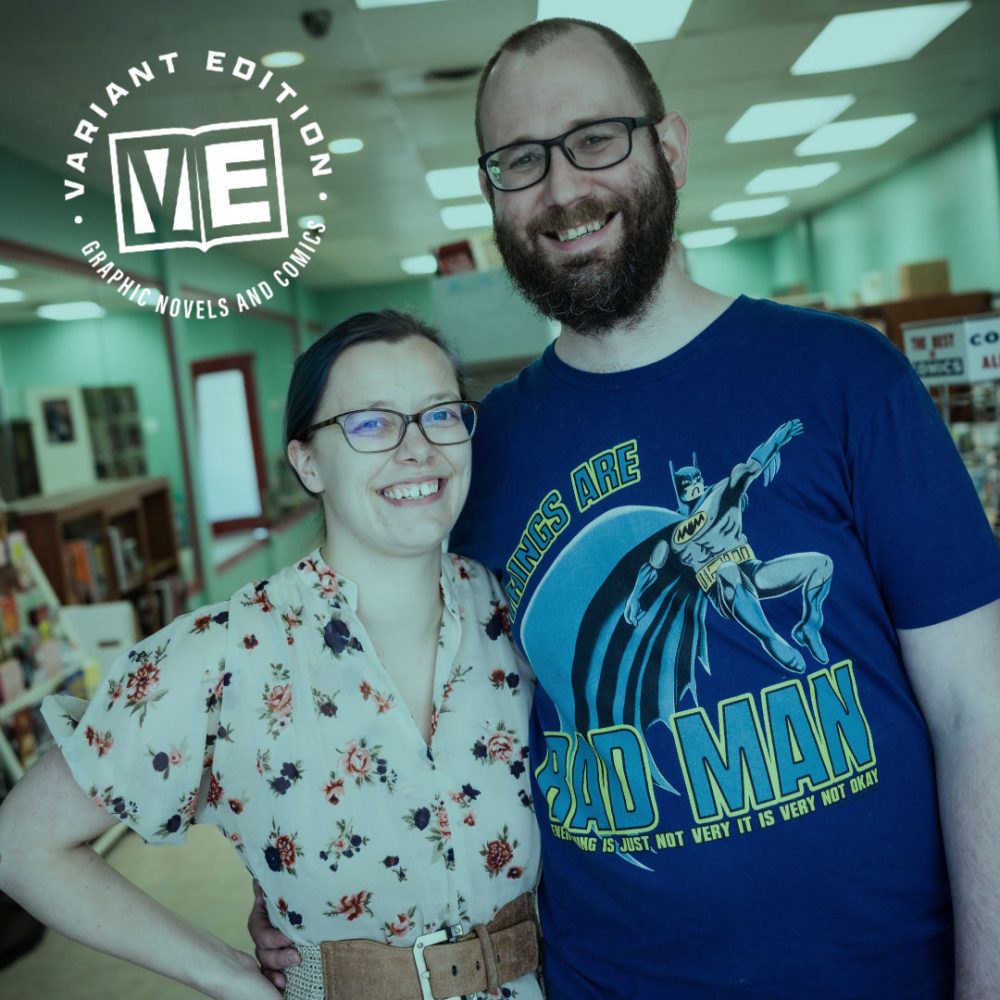“Do you know what you should do?”
These are words that small business owners hear often. Too often.
Usually spoken by well meaning folk, the sentences that follow these words are almost always unhelpful. Occasionally, they are completely unhinged.
One of my favourite “do you know what you should do”s of all time came from a man who walked into the store with an air of mighty intent. His stride had purpose. His gaze, taking in the store in a slow swooping manner, was thoughtful. In short measure he caught my eye.
“Books, huh?”
“That’s right,” I replied, “Comic books.”
“Comic books?” he said, hitting the first word hard, “Interesting, interesting.”
A slight pause.
“For reading?” he asked.
“That’s the general intent, yes,” I told him.
“Interesting, interesting.”
By this point, he had arrived at the sales counter. He leaned on it a bit, and turned his head to look at me directly.
“You know nobody reads, anymore right?”
“I…”
“You know, I can’t remember the last thing I read. S’no purpose in reading, you know?”
I refrained from attempting to replying again, now knowing this was not a conversation, but something else entirely.
“It’s just words. Words are nothing,” he continued, “I don’t see this place lasting too long.”
There was a pause. One almost long enough that he could have wrapped that idea and was looking for acknowledgment. He was not.
“Hey, do you know what you should do? Sell magazines.”
I couldn’t let this one go without trying.
“Magazines?” I asked, “Like to read?”
He waved his hand dismissively in my direction, “No, not to read, just… magazines.”
He pointed a finger at me, “Magazines can be worth money, you know. Old Playboys? Do you have those?”
“No, we…”
“Those are worth money. Popular Mechanics. Stuff like that,” he said, “Yep. Magazines.”
There was a long pause.
“Well anyway. Best of luck with this,” and he strode right back on out.
I never saw that man again, but every now and then I think about him and his fascinating disconnect from the idea of reading and (at a guess) the meaning and function of words.
Wild outliers like that aside, there’s always a lot of genuine help trying to be offered when someone asks you if you “know what you should do”. The problem stems from the fact that their answer isn’t a solution for you, it is a solution for them, in the hypothetical situation where they are in your shoes. Their advice can never work, because every individual small business is a fingerprint – something unique that exists as an extension of the people who run it day to day.
My business and life partner Danica and I will occasionally have discussions about the store, and how it wouldn’t exist the way it does if one of us were missing from the equation. Variant Edition is the product of two usually similar but sometimes diverging points of thought, the combination of which are made greater as a whole. That alchemy is almost impossible to come by, and was something that took a lot of work to grow. There were times where we had other voices in the mix, and each time ended in disaster, and each disaster, unique. What we have is a rare thing.
So when folks are telling us their ideas to help better the store or where to put our focus, it generally doesn’t fit. A lot of them aren’t bad ideas in and of themselves, pushing out into the sports card market or bringing in an array of board games. For some people, that would work wonderfully, and create something quite additive. In our hands? Both ideas would be accomplished to the best of our abilities, but would never quite become something helpful without magically hitting the zeitgeist at exactly the right time.
We discovered this early on when we had a partner who worked on a gaming portion of the store (the less said about that person, the better), and we had it later on with a short-lived partner who ran a used books portion. The ideas at play on paper weren’t bad – but they smudged the fingerprint. They pulled us away from the things that made our store special, and what made people want to come in regularly.
We truly didn’t become the Variant Edition we are today until we dropped the things that made us better for someone else, and not ourselves. That included things like jettisoning the games and used books (outside of graphic novels). It also included us eliminating our back issue section, and focusing only on fresh releases. Like most comic shops in the city, we had a decent selection to go through and had regulars who would pop in every now and again to pick out a few gems they had been looking for – but it was never anything we got too deep into, or really focused on. It was a thing that we did, because every other store did that thing. Then we realized that having that section running just to have it was a terrible idea.
In our city, there are a lot of comic shops. Two of them do not have accounts with new comic distributors. At least four of them focus on back issues as their primary bread and butter. Many have robust gaming sections and tables that dominate the store. No two are alike, even within the chains that still exist.
This is an incredibly important thing.
Because despite telling you that offering people advice on “what they should do” as a shop, I have one piece of advice that I’ll offer and receive on any day:
Build the store that is uniquely you. Or, uniquely you, and your partners. Do that with your entire heart, and do not compromise. Do not listen to the people who tell you what a real comic shop is, or how they should function. Do not listen to reviews that demand you to be the thing that you are not. Their version of your shop might be interesting to them, but at the end of the day, it has to be interesting to you.
There’s a lot of reasons I think this. On the simplest level, I can tell you that Variant Edition didn’t truly become successful until we focused on the things that made us unique as a shop and a presence in the city, and in this industry. We are a graphic novel store that does comics. We are constantly reaching out to new readers, and finding them pretty much every single day. We have an all ages section that fills a third of our store. The whole place is separated out by genre in order for folks to have the greatest ease toward discovering their next favourites – and we know the product. It is a living and breathing thing that we have brought to life, and we share in it with others.
Once we stopped trying what we were supposed to be, the community could tell. No one has said this to us specifically, but we could absolutely feel it. Word started to get around about our store, and the flavour that we had. This started bringing in more and more people, because we were offering them a unique experience. During this process, we did end up losing a few people who were once regular visitors, as their interests were more based in the collectible experience, and we were focusing more and more on the reading experience, and pushing away at the shiny big ticket things. I’m not going to lie, some of those losses hurt a little – but in the wake of those losses here and there, we kept experiencing huge growth in new and repeat visitors, a trend that continues to this day.
The fact of the matter is, as a small business owner, you’re never going to be a store for everyone. The store for “everyone” is called Amazon, and they’re always going to give the “everything for everyone” experience better than almost any other business can. No one will really be able to fight them on that barring some catastrophic (and welcomed!) shifts to our world. But a small business is never going to be beat on providing a personal experience. It will never be beat on becoming “everything to someone”.
Being “everything to someone” is an important thing. Not only does it bring you regular business, but it also introduces people in your life who will truly support you, and a lot of times, that support will go beyond just day to day business. As a comic shop owner, there tons of people who I talk to more frequently than I do the people who I consider to be my closest friends. These are people that I have gotten to know quite well over time, and in turn, they’ve gotten to know quite a lot about me. When good things happen, they help celebrate with us. When bad things happen, they’re there to help us get back up on our feet. They are true and unwavering, and you can’t build that by being a shop that isn’t completely and uniquely you. A shop without a vision will often fall prey to the whims of people who find you convenient today. They’ll drop you if a store moves in closer to them, or if Amazon happens to be running a solid deal on that thing you already ordered for them. They walk away when you stop doing back issues.
This, is the way forward. For shops that are unsure about their future, as costs keep rising and comics shift their focus – the one universal piece of advice I can give you all is to cut out the sections of it that aren’t reflective of your intent. Maybe not cold turkey, but come up with a plan to walk those elements back or drop them entirely. Become a concise idea that people can cling to. “They’re the shop that offers me this feeling, and that means something to me.”
In a world where all of our favourite things are at our fingertips, the only way we have to connect and survive is to be specific. To be something. Not only do I think that is good advice for individual comic shops, but I think that is good advice for the publishers, and the industry as a whole.
There’s a lot more to dig into on this track, but that’s where I’m going to leave things today. Thanks for reading.
If you want more articles like this, but on a more granular, micro scale, check out my Substack where I talk about the industry and my life in it roughly three times a week. Sometimes you see hints of what’s to come in my articles here at The Beat before they combine into something larger. Sometimes you just get my thoughts on how relentless small business ownership can be. People seem to enjoy it, but more importantly, I seem to like sharing it, so here we are.
Talk with you soon.
-B.










